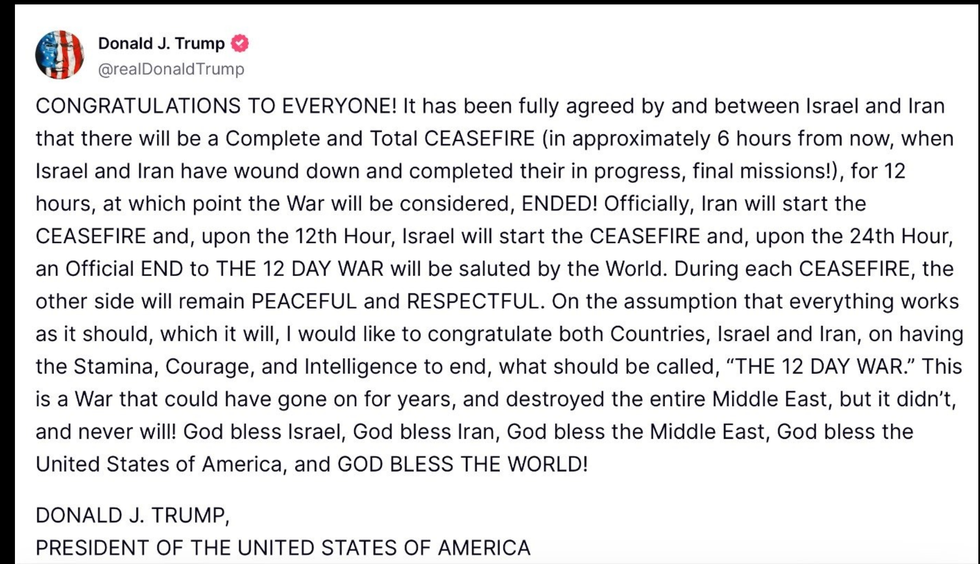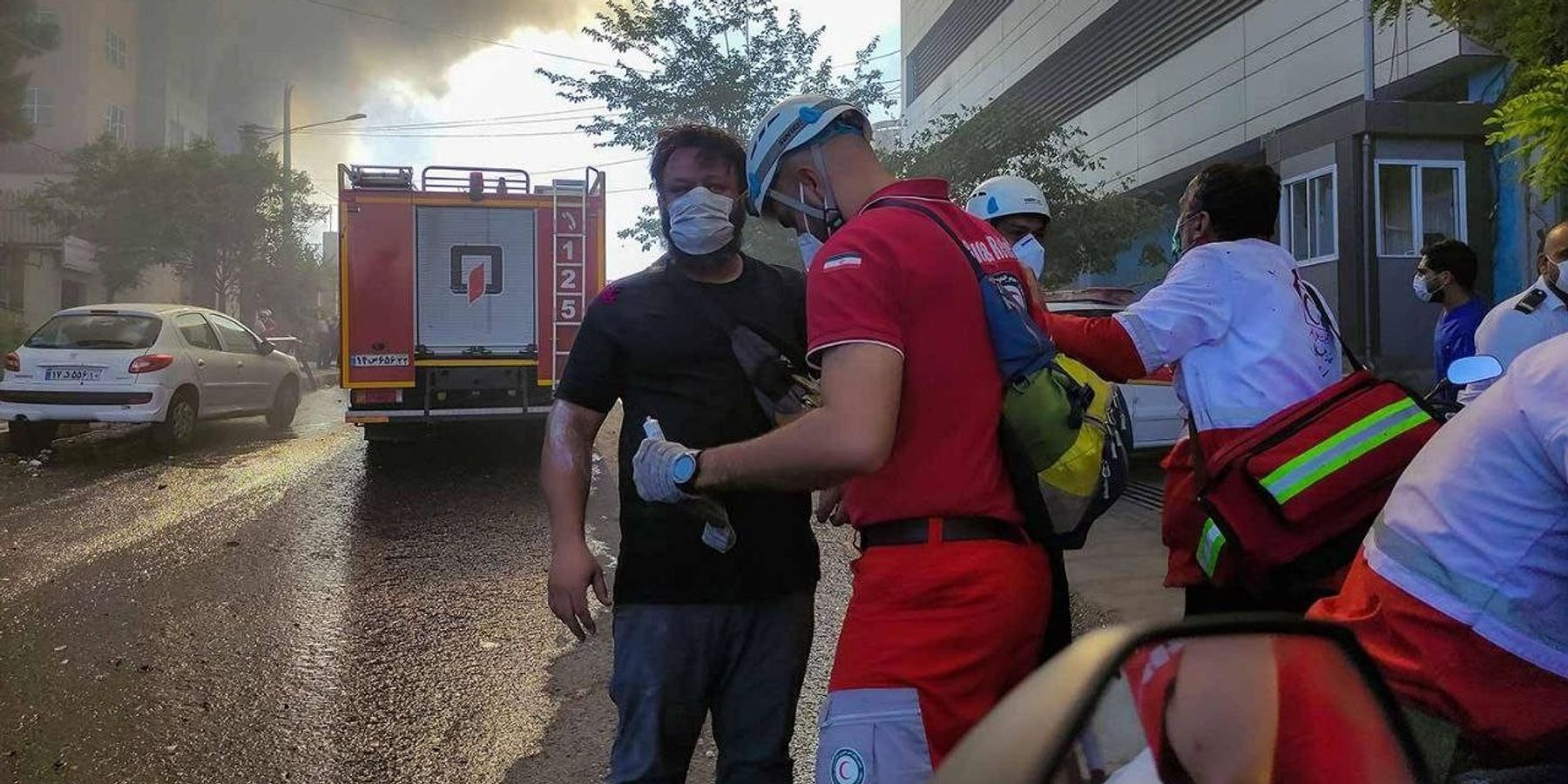A fragile ceasefire that was brokered by President Trump late Monday and went into effect early Tuesday could serve to end the violence between Israel and Iran, which has been responsible for the loss of hundreds of lives and no doubt billions of dollars of damage in both countries.
The fighting began when Israel launched a surprise missile attack against Iran on June 13, striking its nuclear facilities and assassinating scores of its military leaders and scientists in their beds, their families and nearby civilians also falling victim to attacks over the course of several days. Iran launched its own retaliatory attacks, killing upwards of 30 and injuring thousands across Israel, according to Israel's Health Ministry, as missiles repeatedly broke through the nation's vaunted missile defense shields. According the Washington-based Human Rights Activists, Iranian deaths range over 974 and injuries over 3400.
It was not clear until overnight Eastern Time that all sides had agreed to the ceasefire, but as of this morning, Israel was already accusing Iran of breaking it by launching missiles in violation. Israel responded by ordering "intense strikes" on Tehran. Iran denied launching the missiles. Trump weighed in and said he was "not happy" with Israel's move to strike Iran and reportedly asked them to turn their planes back. According to Barak Ravid of Axios, Israel "scaled back" its operation accordingly.
"We have two countries that have been fighting so long and so hard that they don't know what the f--k they are doing," he said to reporters in what was probably the first presidential f-bomb made during in a press gaggle, on camera, in history.
The day leading up to the ceasefire at 4 a.m. Middle East-time was a violent one. Iran reportedly killed four people in Beersheba in a missile blast, destroying an apartment building and severely damaging surrounding structures. For its part, Israel killed several IRGC members in strikes on Iranian bases Monday. In the meantime, Iran also launched limited retaliatory strikes against the U.S. base in Qatar.
The ceasefire announcement, made on Trump's Truth Social, reportedly came as a surprise to even top officials in the White House. It came days after the Trump administration launched its own attacks on the Iranian nuclear program. In the aftermath it is clear that the program had not been "obliterated" as Trump said on Saturday, but to Trump, the goals of the operation appeared to have been met and it was better to stop the fighting than get into "a War that could have gone on for years and destroyed the entire Middle East."

This puts the Israelis in an interesting situation. Reports indicated that their missile defenses were being taxed at home and needed the help from the U.S. to deal the necessary blows to the nuclear program in Tehran. However, Iran is likely already reconstituting what was lost in Saturday's attacks. It is not clear Israel will accept a job halfway done after making Iran out to be a threat to its existence.
“Having decided to hitch the Israeli horse to the Trump wagon, Netanyahu had no choice,” Israeli-based commentator Ori Goldberg told Al Jazeera. Prime Minister Benjamin Netanyahu, for his part, claimed overnight that the nation's goals had been achieved, with the “immediate” nuclear threat removed, as well as the threat to Israel from Iranian ballistic missiles.
“Netanyahu decided to gamble on Trump coming to his rescue. Trump did, and Netanyahu is therefore obligated to assist in Trump’s goal, which was and still is ultimately securing the regional deal and not launching a regional war.”
















